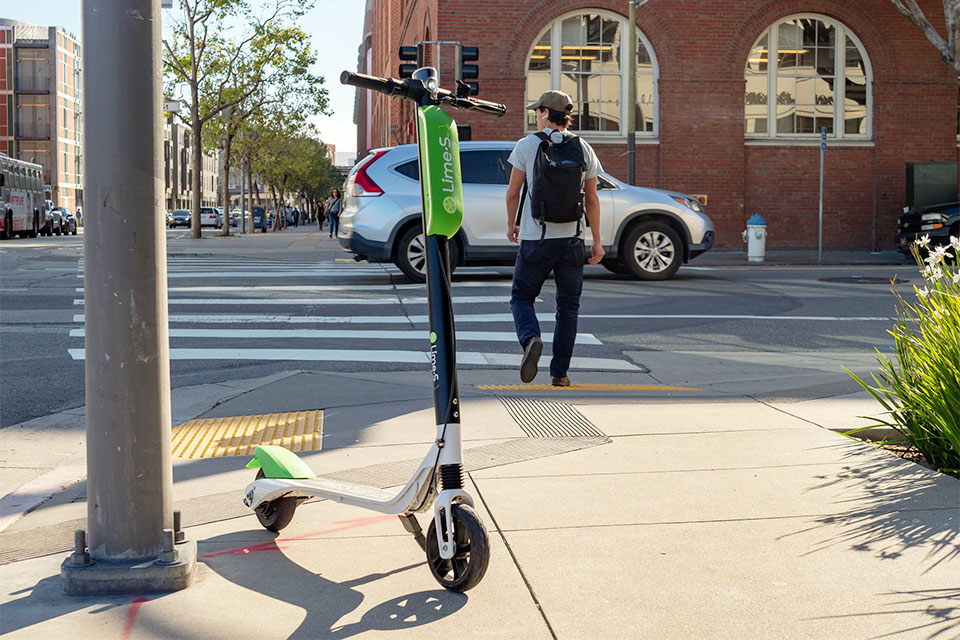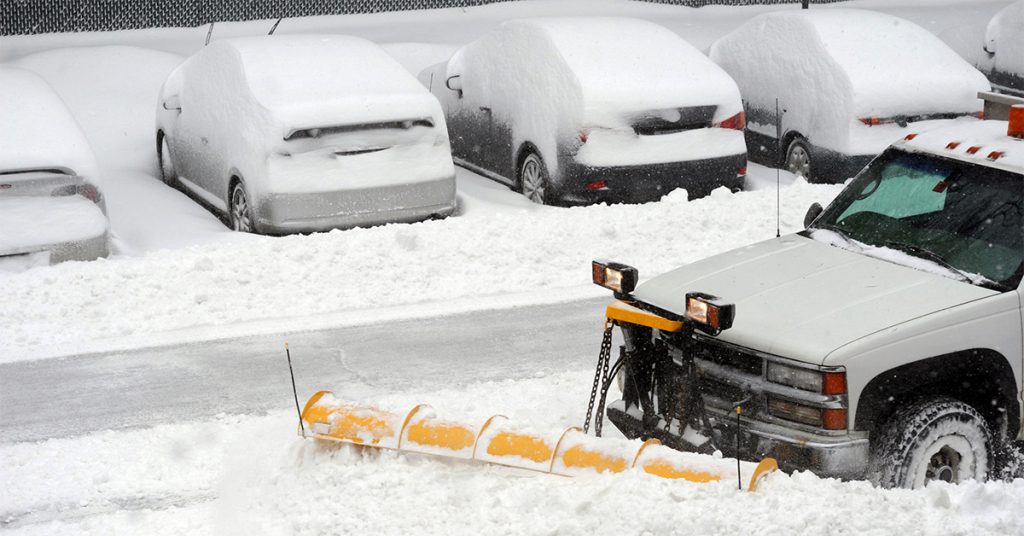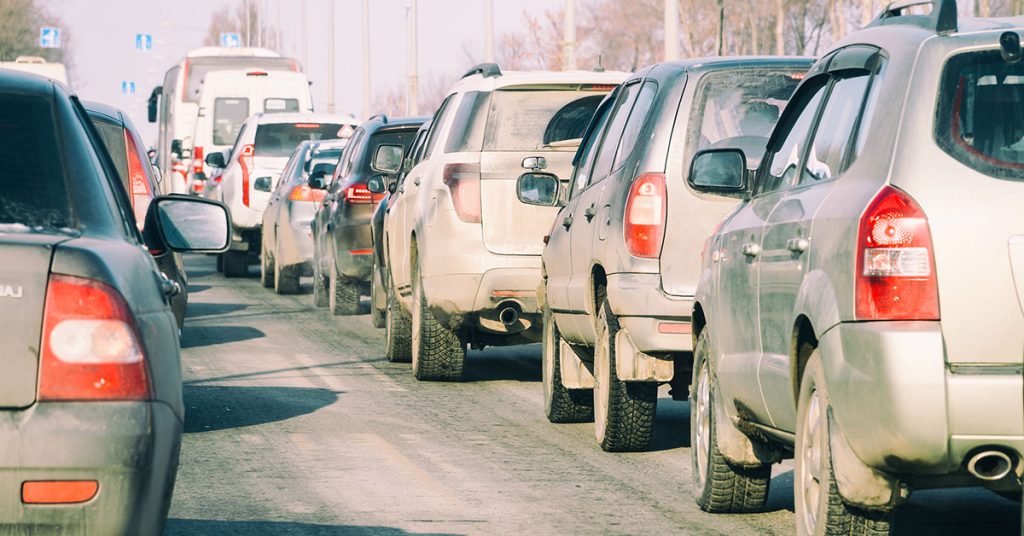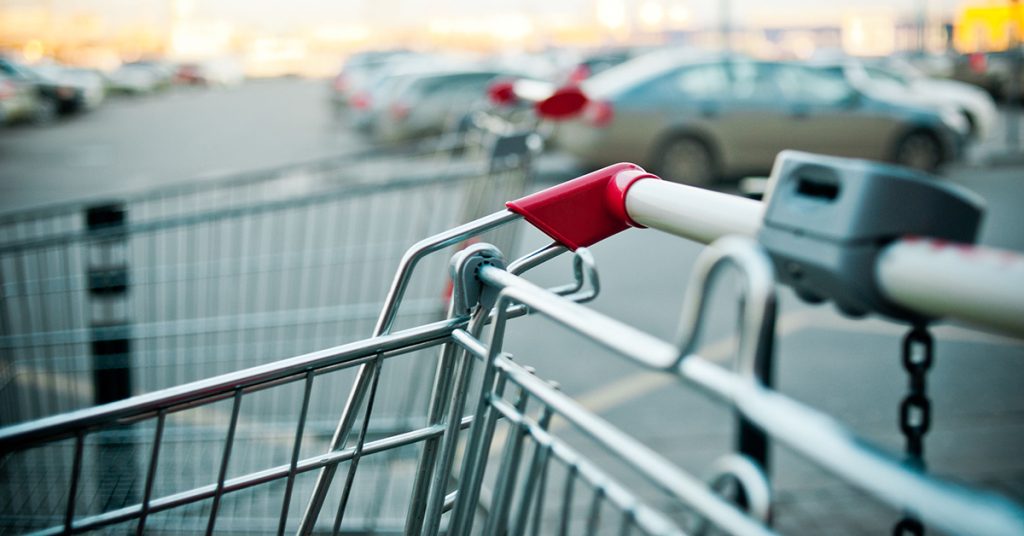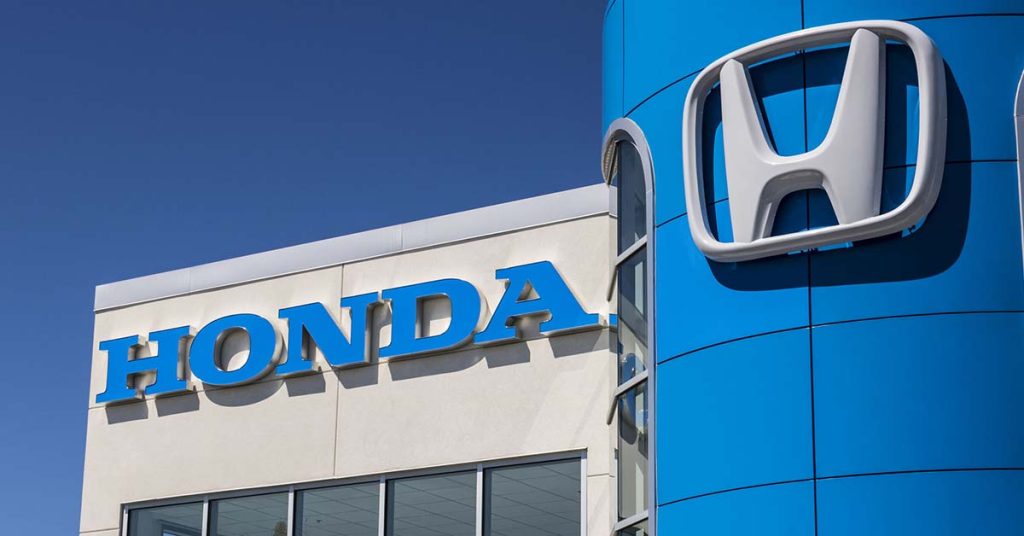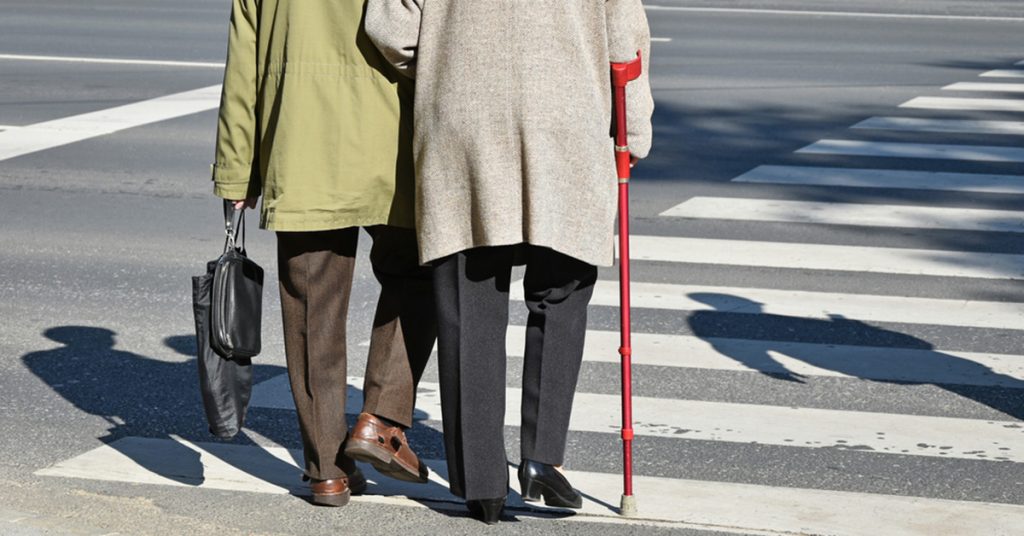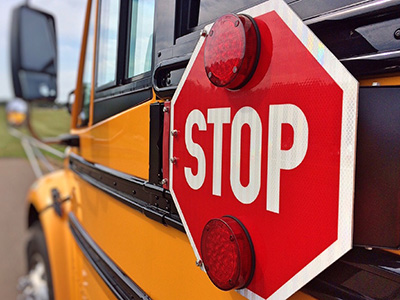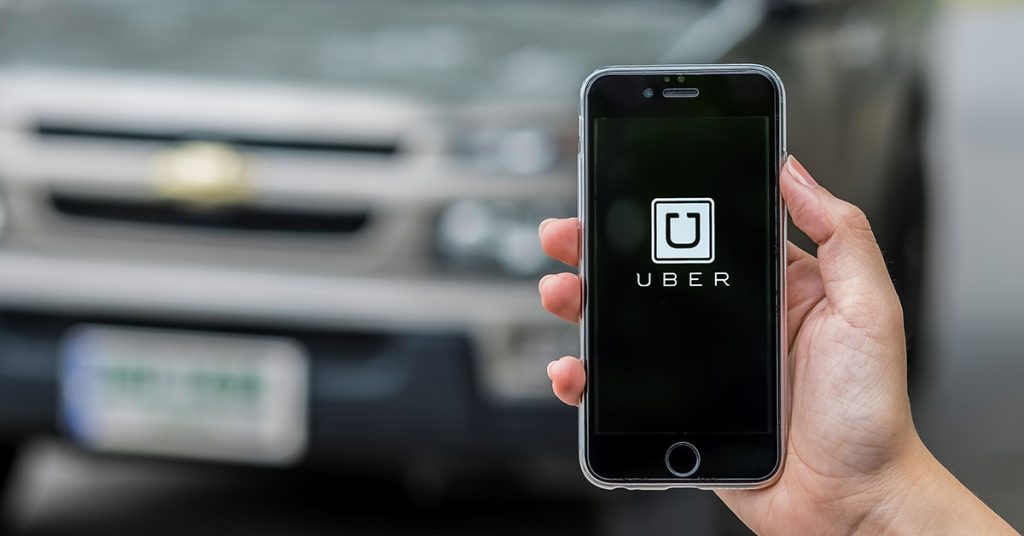Car Accidents
New Report on Electric Scooter Injuries as Massachusetts Considers Regulations
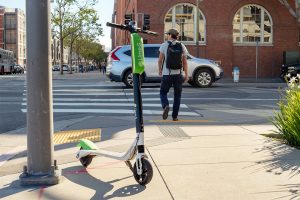
Electric scooter parked on a sidewalk. Seven scooter companies have expressed interest in coming to Massachusetts, according to the Metropolitan Area Planning Council (MAPC).
If proposed legislation passes, electric scooter rentals may soon return to Massachusetts. Bird – a start-up scooter company – flew in and out of the state last year on a failed test run.
Since then, many communities have been discussing regulations locally while waiting for action on the state level. Last month, Gov. Charlie Baker delivered, including electric scooters in his road safety bill, calling for regulations similar to bicycles. Like cyclists, scooter riders would be required to wear helmets to protect themselves from head injuries.
As it stands, electric scooters are regulated more like mopeds and must have blinker lights under M.G.L. ch.90 §1E. Bird did not equip their scooters with blinkers.
Bird caught Cambridge and Somerville off guard last summer, setting out dockless electric scooters on sidewalks for rent – without permission or any approval process. The cities responded with cease-and-desist letters. As Bird packed up its scooters, city officials began discussing how to regulate the scooters locally. But the conversation only went so far because of state law.
In its first year, Bird pushed hard into 100+ cities around the world, surpassing 10 million rides, according to Wikipedia. Bird left Massachusetts last year, but it’s likely to return one way or another. The company has taken legal action against Beverly Hills and other communities with scooter bans.
The Impact of Electric Scooters on Safety
The industry is closely following the proposed legislation in Massachusetts. In addition to Bird, six other companies, including Lime, Uber and Lyft, have expressed interest, according to media reports.
Scooters are the next step for rideshare and bike share companies (In fact, Bird was founded by a former Uber and Lyft executive; Lime counts Uber and Alphabet – Google’s parent company – as investors. And Uber and Lyft themselves are interested in their own right).
Scooters are an affordable way to travel, with rides costing even less than subway fare. Anyone with a mobile phone can sign up and unlock a scooter for about $1.00; from there, the ride is about 15 cents per minute.
Scooters may help alleviate some traffic congestion, but they will also increase pressure in many areas, such as Somerville and Cambridge, which have high counts of pedestrians and cyclists. Other states are seeing accidents and we will likely see more car accidents and truck accidents in Boston and across the state, regardless of the skill, leadership and collaboration local and state officials bring to the process.
Although companies may mandate helmet use in the fine print, many people will end up riding without helmets.
One important step will be educating drivers on how to travel near scooters and understand the scooter’s capabilities. Many drivers may expect blinker signals and will have to get used to the battery-operated motorized pace of scooters.
Educating scooter riders is just as important. While motorcyclists have to study up and earn a special license, scooter riders can decide on a last-minute impulse to try a scooter. And when someone decides to take a scooter ride at the last minute, they are more likely to ride without a helmet. Helmets are not included in the rental, either.
Before you consider riding a scooter, take time to plan. Keep a helmet at home and at work if there is a chance you may use a scooter. Take a class to learn how to ride in a safe area, such as an empty parking lot. Finally, ask your insurance agent if you have enough auto insurance should you be injured on a scooter. This is critical because the driver who hits you may not stop or may not have enough insurance to cover your injuries.
Consumer Reports Publishes E-Scooter Injury Data
Consumer Reports recently reported Bird and Lime, the two largest electric scooter companies, reported just 470 scooter accidents between the fall of 2017 and July 2018. Both California-based companies were founded in 2017.
Consumer Reports conducted its own “spot tally” and found there were actually an estimated 1,500+ people were injured in e-scooter crashes (Source: “E-Scooter Ride-Share Industry Leaves Injuries and Angered Cities in its Path”). Consumer Reports surveyed 110 hospitals and five police departments or public agencies in 47 cities where at least one of the companies operated. Outside its survey, Consumer Reports at least 4 people have been killed on electric scooters, including a 21-year-old man in Austin, Texas on Feb. 2. The man was on his scooter, traveling in the wrong direction when a Uber driver changed lanes to exit and struck the man and his Lime scooter.
An important note on the Consumer Reports survey: At this point, about 62 percent of the hospitals and agencies reported they had no scooter reports or they don’t track scooter injuries or they don’t have the capability to track injuries.
A doctor in Bloomington, Ind. reported he treated serious injuries, included multiple concussions, facial fractures and bilateral forearm fractures. In some cases, patients required surgery for their electric scooter injuries.
Another doctor estimated he had treated 20 patients after electric scooter crashes. Not one wore a helmet, except for his own son. Consumer Reports reported experts were concerned about the availability of helmets because not every rider carries a helmet or plans to use a bike rental (for its part, Bird told Consumer Reports it has given away 65,000 free bicycle helmets and strongly encourages helmet use).
Consumer Reports is not the only one speaking up about electric scooter safety. Last October, a class-action lawsuit was filed against Bird, Lime and other scooter companies. The lawsuit was filed in Los Angeles Super Court and alleged the companies were “aiding and abetting assault” by contributing to injuries sustained from collisions with scooters. Three of the eight initial plaintiffs said they were pedestrians who were hit from behind by scooters. One victim reported the scooter hit him and kept going. This was reported by L.A. Biz.
Victims said the scooter companies were negligent because they should have known their vehicles would be a dangerous “public nuisance.” Bird and Lime were named, with the victims calling their safety instructions inadequate while the scooters themselves had mechanical issues. The complaint also claimed the companies have breached the warranties on the scooters and they are not suitable for repeated use by the public.
Companies Taking Massachusetts Dockless with Bike and Scooter Rentals
The “dockless” part of scooters will also impact safety. Without the docks, riders can just leave scooters wherever they want, on the sidewalk or even on the side of the street. Fortunately, the Boston area already has some experience with bikeshares and dockless transportation.
Blue Bikes offers bikeshare rentals in Boston, Cambridge, Somerville and Brookline. First arriving in Boston in 2011, the program now offers 2,500 bikes at 262 bike docks. Beyond these communities, the price tag of those bike docks have stalled the program’s growth.
That’s where companies such as Ofo and Lime have stepped in with dockless rentals. Rather than pedaling to a dock, riders can lock bikes up wherever they choose. If another rider is in the area, they can find the bike on the company’s mobile app. The company is supposed to collect bikes at the end of the day.
Ofo set up in Worcester and Quincy last year, then quickly retreated. The Metropolitan Area Planning Council (MAPC) chose Lime and Spin to provide dock-less bike share services in 15 communities last year. Spin later announced it was going to focus on electric scooter rentals, rather than bikes.
Communities working with MAPC and Lime: Arlington, Bedford, Belmont, Chelsea, Everett, Malden, Medford, Melrose, Milton, Revere and Winthrop. A little farther west, Needham, Newton, Waltham and Watertown all participated.
As for scooters, Boston, Cambridge, Somerville and Brookline are expected to operate a regional scooter system. We will have to wait and see on other communities.
About Breakstone, White & Gluck – Free Legal Consultation
Our Boston personal injury lawyers have over 100 years combined experience representing individuals injured by car accidents and truck accidents in Massachusetts. If you have been injured, learn your rights for seeking compensation. Our attorneys have been recognized by Top 100 New England Super Lawyers, Top 100 Massachusetts Super Lawyers and Best Lawyers in America. We are here to help you. Free consultation: 800-379-1244 or 617-723-7676 or use our contact form.
Snow Plow Accidents Claim Lives in Massachusetts and Illinois
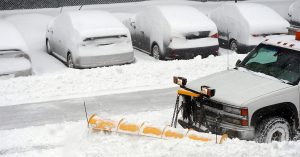
A snow plow crash killed an Easton man this week. Police are currently investigating.
As we battled snow and cold, there were two fatal snow plow accidents this week, including one death here in Massachusetts. In Easton, a snow plow hit and killed a 64-year-old man who was changing a tire on Route 138. Meanwhile, in Illinois, another man was snow blowing his driveway when a plow truck backed into him. Both men were pronounced dead on the scene.
These were not the only snow plow accidents, either. In Johnson County, Kansas, a snowplow driver veered off the road and died in a single-car crash. In New York, a state DOT snow plow and vehicle collided in the Town of Aurelius in Cayuga County. Traffic was stopped as two people were airlifted for medical treatment.
Easton Snow Plow Accident
NBC Boston reports the 64-year-old Easton man was hit about 1 p.m. Wednesday on Washington Street, which is Route 138. The victim parked his van on the street, along the breakdown lane on the northbound lane, when the passenger truck plow approached. The victim was fixing the rear tire on the driver’s side when he was hit. According to the Brockton Enterprise, police arrived to find broken vehicle parts, a pair of sneakers and other debris littering the street. The car jack, tire and van were left behind.
Neighbors witnessed the horrific crash and told NBC Boston that the victim had been kneeling down when he was hit by the plow’s blade, then dragged. One homeowner has turned over home surveillance video to help police with the investigation, according to the news station.
Police are still investigating whether the plow driver will face criminal charges. The police chief told NBC Boston that one focus of the investigation will be where the victim was at the time of the crash, whether he was in the roadway or off the roadway.
Police have not released the driver’s name, but said he remained on the scene and cooperated with the investigation.
Illinois Snow Plow Accident Kills Man
In the Chicago suburbs, there was another sad story in the Village of Libertyville. A 75-year-old man was killed Monday morning while clearing snow and ice from his driveway. According to news reports, the victim may have been snow blowing his driveway when a snow plow driver backed into him. The crash happened in a cul de sac in the 600 block of Bridle Court in the Village of Libertyville.
The man was pronounced dead on the scene and the plow driver was placed on paid administrative leave pending an investigation by the Lake County Major Crash Assistance Team began investigation.
Snow Plow Truck Accidents in Massachusetts
Snow plow truck accidents happen every year in Massachusetts and they are often fatal. Snow plow crashes can seriously injure drivers and passengers. But many snow plow crashes injure pedestrians.
Snow plow drivers in Massachusetts have a responsibility to obey all traffic laws and exercise caution, always watching for pedestrians and other vehicles.
They must meet certain requirements to clear snow. First, snow plow drivers must apply for a commercial driver’s license (CDL). Second, they must buy commercial auto insurance, along with plow equipment. Finally, the Registry of Motor Vehicles issues special snow removal plates which they must use. Yet, beyond this, there is little oversight, including no restriction on how many hours they are allowed to work.
Plow drivers can work for private companies and contract with cities, towns, the state or private businesses; they can be owned and operated by cities and towns or they can be owned and operated by the Massachusetts Department of Transportation.
Over the years, Massachusetts has seen numerous snow plow accidents lead to serious injuries and death. Causes of snow plow accidents can include drowsy driving, checking a cell phone and inexperience with the heavy machinery.
Snow plow drivers have faced criminal charges and civil lawsuits in Massachusetts. In 2016, a plow driver was charged with manslaughter in the death of a 60-year-old man he struck in Medford. A year earlier, the victim left Bread & Circus Bakery – a Whole Foods Market company – and walked across the store’s parking lot. Police allege the plow driver had been smoking marijuana prior to backing up and running over the worker.
Another tragedy came in February 2015, when a 21-year-old Fitchburg woman was killed in a snow plow accident as she walked home from a local Market Basket, where she worked. Her family filed a wrongful death lawsuit against the snow plow driver and his company, Einstein’s Inc., along with his insurance carrier, Plymouth Rock Assurance Corp.
According to the Sentinel & Enterprise of Fitchburg, the lawsuit alleged the driver had operated negligently, recklessly and carelessly and created a safety risk on public roads and highways and that the company had breached its duty to public to ensure the driver was operating safely.
If you or a loved one have been injured by the negligence of a snow plow driver in Massachusetts, our Boston personal injury lawyers can help you learn your rights for seeking compensation.
For a Free Legal Consultation, Call Breakstone, White & Gluck of Boston at 800-379-1244 or 617-723-7676.
Hands-Free Cell Phone Law Proposed in Massachusetts

Hand-held cell phone use would become illegal under new legislation proposed by the Massachusetts’ governor’s office.
Many of us expected Gov. Charlie Baker and Lt. Gov. Karyn Polito would file legislation to limit drivers to hands-free cell phone use this year. But the Baker-Polito Administration went much further last week when it filed, “An Act Relative to Improving Safety on the Roads of the Commonwealth.” In announcing the legislation, the administration reported more than 15,000 people were seriously injured in Massachusetts traffic accidents between 2012 and 2016. Another 1,820 people were killed, including 14 road workers.
The Massachusetts Legislature now has a great deal to consider in coming months. Because these proposals will impact us all, we encourage you to follow the media coverage and share your thoughts with your local legislators and town officials.
Cell Phones. In 2010, Massachusetts banned texting while driving. There have been similar proposals, but no action on handheld cell phones. Meanwhile, distracted driving accidents have increased, claiming 3,450 lives in 2016, according to the NHTSA.
The Baker-Polito proposal would require drivers who use electronic devices to go “hands-free” and make use of hands-free driving equipment, such as Bluetooth. Drivers would have to use voice commands instead of reaching for hand-held cell phones. The proposal does allow “a single tap or swipe to activate, deactivate or initiate hands-free mode.”
If this proposal is approved, Massachusetts would be the 16th state to have a hands-free cell phone law, joining all the New England states.
Primary Seat Belt Enforcement. According to the GHSA, 34 states have primary seat belt laws for drivers and front-seat passengers.
Massachusetts has a secondary seat belt law, meaning police officers cannot simply pull a motor vehicle over for a seat belt violation. A police officer must first observe another moving violation, such as speeding or running a red light.
A primary enforcement law for seat belts has been a hard sell in Massachusetts. But we urge you and your family to use the debate as a reminder to wear a seat belt every time you ride. According to the NHTSA, seat belts saved an estimated 14,668 lives in traffic accidents in 2016. Wearing a seat belt is an easy choice we can all make to protect ourselves.
Road Workers. The Massachusetts Department of Transportation would be granted authority to lower speed limits in construction zones. Fines would double in areas where workers are.
Truck Sideguards. In 2014, the Boston City Council approved a truck sideguard ordinance for all city-contracted trucks – the first in the nation. The governor’s proposal builds on this, mandating sideguards for all state-owned trucks and vehicles over 10,000 pounds. Along with sideguards, trucks must be equipped with convex and cross-over mirrors to increase driver’s visibility. If approved, trucks would have to be equipped by Jan. 1, 2020. All state and municipal contractors would have to do the same by 2022.
The sideguards are intended to protect the area between the truck’s front and back wheels, blocking it off to cyclists and pedestrians who can be caught underneath. Massachusetts has seen numerous cyclists who have been seriously injured or killed by these types of truck accidents.
Electric Scooters. The proposal would start regulating electric scooters like bicycles and allow scooter rentals to move ahead in local communities. This has been a point of contention in the Boston area as bikeshare and rideshare companies are eager to start scooter rentals here. Cities have argued that scooters are illegal because they don’t have directional signals as stated under current state law.
Ignition Interlock Devices. When drivers are convicted of operating under the influence or drunk driving in Massachusetts, they are permitted to apply for a hardship license. With this proposal, anyone who applies for a hardship license must use an ignition interlock device for a minimum of six months. The proposal also clarifies that the Registry of Motor Vehicles has authority to impose penalties if drivers attempt to drive after consuming alcohol or tamper with a device.
About Breakstone, White & Gluck – Boston Car Accident Lawyers
With more than 100 years combined experience, Breakstone, White & Gluck specializes in representing individuals injured in car accidents, truck accidents and other catastrophic collisions. If you have been injured, learn your rights at 800-379-1244 or 617-723-7676. You can also use our contact form.
Drive Safely: Holiday Dash in Boston Starts Mid-Week
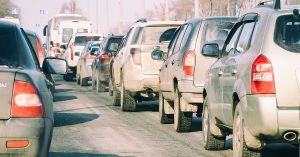
As a record-number of holiday travelers hit the road, Boston will be especially hard hit this week, according to AAA’s travel forecast.
However you celebrate, we hope you enjoy a festive holiday season, filled with friends, family, holiday events or volunteering.
But most of all, here at Breakstone, White & Gluck, our attorneys hope you commit to travel safely during the holidays. While it’s the season for giving, Thanksgiving to New Year’s brings some of the most dangerous days on the roads.
AAA is forecasting a record-breaking 112.5 million holiday travelers – or 1 in 3 Americans. This represents a 4.4 percent increase over last year. More than 102 million will travel by car, the highest number in 17 years. The forecast holds bad news for Boston though. On Wednesday afternoon, we could end up with one of the longest commutes in the nation.
Tips for driving safely for the holiday season:
Plan for Boston holiday travelers. AAA and INRIX forecast this Thursday, Dec. 20th, will be the most congested day nationwide. Boston is on a list of 10 holiday hot spots, with the worst travel expected on Wednesday, Dec. 19th. The absolute worst time to drive is 3:30 to 4:30 p.m. that day and you can expect the commute to take 3.5 times as long. It’s hard to believe the forecast is so terrible. It’s based on historical data and recent travel trends.
Unfortunately, this heavy traffic won’t just impact those starting their holiday commute; it will also challenge workers, school buses, delivery services and just about all of us.
Make a plan. Take public transportation if you can. Adjust your work hours if your employer allows it. Services like Waze and Mass511 can help you navigate and take away some of the stress.
Buckle up. Wear your seat belt at all times. When driving others, ask if they are buckled up before you start moving. People really need the reminder. Even after years of safety campaigns, nearly 10 percent of Americans are still not wearing seat belts, according to the National Highway Traffic Safety Administration (NHTSA). In 2016, seat belts could have saved more than 2,400 people killed in car accidents (Source: NHTSA).
The day before you travel, also take time to check your children’s car seats, so they are properly secured.
Plan enough space for holiday gifts. When traveling with gifts or food, make sure you leave enough space so you can see through your windows.
Watch your speed, especially near pedestrians. Speeding is involved in one-third of all traffic fatalities, according to the NHTSA. It is also a leading cause in car accidents which injure pedestrians. Commit to traveling the speed limit or slower if you need to adjust for weather conditions, dark roads or unfamiliar areas. Have patience in parking lots and remember, during the holiday season, pedestrians may be out later at night.
Drive sober. If you celebrate outside your home, our suggestion is to skip the alcohol and focus instead on all you are grateful for this year. If you plan to drink, choose a designated driver whom you trust not to drink. As a backup, install the Uber and Lyft apps on your phone.
Drunk drivers killed 10,874 people in motor vehicle crashes in 2017, representing 29 percent of all traffic fatalities in the U.S., according to the NHTSA. Here in Massachusetts, drunk drivers caused 34 percent of all traffic deaths.
As personal injury attorneys who represent those injured by drunk drivers, we know firsthand that when someone is killed by a drunk driver, nothing is ever the same for the family. Drunk driving accidents are senseless, entirely preventable had the driver just made a better decision.
As for drunk drivers, they can be criminally charged and expect to face a civil lawsuit, as can others in certain cases, including bars and restaurants in liquor liability cases.
Marijuana will be in greater supply this year, after retail stores have opened for recreational marijuana sales in Massachusetts. Use good judgment. Do not consume marijuana when you are driving. Users are about 25 percent more likely to crash than other drivers, according to the Centers for Disease Control and Prevention.
No distracted driving. We cannot say it enough: it’s critical to put your cell phone away when you are driving, especially in heavy traffic. Tell your loved ones your phone is off the hook until you stop driving and turn your engine off. Stay committed to that. Don’t engage in texting while driving, reading e-mail or checking Facebook when driving.
Have your directions ready in advance. If you are driving long distance with children, make sure you have snacks, books, coloring sets or games prepared. If possible, drive with another adult so they can respond to your children and make an emergency call if necessary.
Finally, plan ahead and decide where you want to take rest breaks.
Emergency supplies. Do everything you can to ensure you reach your destination safely. Carry cash, a credit card and an emergency kit containing: a mobile phone charger, a first-aid kit, water and snacks, a flashlight and extra batteries, warning flares, jumper cables and a basic tool kit. And don’t forget ice scrapers, shovels and blankets.
Additional resources:
AAA’s Holiday Travel Forecast for 2018
National Highway Traffic Safety Administration
2017 Data: Alcohol-Impaired Driving, NHTSA
About Breakstone, White & Gluck
Free Legal Consultation: 800-379-1244
For more than 25 years, Breakstone, White & Gluck has represented those injured by car accidents in Massachusetts. Our Boston car accident lawyers are known for our top results for clients and their families. We have consistently been recognized for our results, including by Massachusetts Super Lawyers, Top 100 New England Super Lawyers and Top 100 Massachusetts Super Lawyers.
If you have been injured, learn your legal rights. For a free legal consultation, contact Breakstone, White & Gluck at 800-379-1244 or 617-723-7676. You can also use our contact form.
Holiday Season Brings Rise in Car Crashes, Parking Lot Accidents
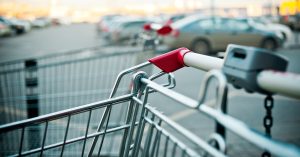
Parking lot crashes are more likely in Boston and Massachusetts this time of year, as holiday shoppers are out. What can you do to prevent accidents? Put down your cell phone, slow down and always watch for pedestrians.
When you finish your holiday shopping, and start to head home, you may be tempted to pick up your cell phone and call someone. But the parking lot is not a safe place and the holidays are not the season.
Unfortunately, car accident claims typically rise during the holidays, as many of us head out shopping or to enjoy holiday lights. According to the National Safety Council (NSC), the increase begins around Thanksgiving and Black Friday. We are now approaching one of the worst stretches, the days just before Christmas.
At Breakstone, White & Gluck, our Boston personal injury lawyers urge you to travel slowly and set aside distractions to prevent parking lot crashes. Too many drivers are engaging in these distractions, according to this recent National Safety Council poll:
- 66 percent of drivers nationwide said they would make phone calls while driving through parking lots.
- Teens were less likely to make phone calls than adults (60 percent).
- Another 63 percent said they would program GPS systems.
- More than half, 56 percent, said they would text and 52 percent said they would use social media.
- Another 50 percent said yes to sending or receiving e-mails, while 49 percent said they would take photos or watch videos.
- More than half of all teens and adults also admitted they would take time for personal grooming (59 percent of teens; 53 percent of adults).
Tips for Preventing Parking Lot Crashes
- Drive slowly. Give yourself plenty of time to react to pedestrians and other vehicles.
- Do not cut through parking lots; follow the traffic lane.
- Avoid distracted driving activities, such as cell phone use, texting, listening to loud music and engaging in intense discussion.
- Choose your place to check electronics, such as before you leave the mall or store.
- Use blinker signals.
- Obey stop signs and other signs. Back out carefully.
- Always watch for pedestrians in the parking lot and at the entrance. Be extremely patient and always wait for them to reach the sidewalk before moving.
- Walk all the way around your vehicle before stepping inside, looking for pedestrians and parents with small children and baby strollers.
- Consider parking away from other cars to avoid shopping mall parking lot crashes.
The Impact: Parking Lot Crashes
The Insurance Institute for Highway Safety reports parking lot crashes account for about 20 percent of all auto claims. The NSC reports on average each year, there are 60,000 injured by parking lot crashes and 500 or more who die. Pedestrian accidents account for many parking lot crashes. Backup accidents are responsible for nearly 10 percent of fatal pedestrian crashes in parking lots.
Over the past few years, a number of pedestrian accidents in Massachusetts parking lots have been fatal. In 2017, a Trader Joe’s employee in Acton was killed. A year earlier, a 52-year-old woman died in Wilmington, outside a Rite-Aid. In 2015, a pedestrian was killed in the parking lot of the Cloverleaf Mall in Natick, just across the street from the Natick Collection (or the old Natick Mall).
Cell Phone Use and Massachusetts Law
Eight years ago, Massachusetts banned texting while driving. If you are texting or writing an e-mail and cause a car crash, you could be cited by police. If you injure another driver, the police citation could be used in a civil lawsuit to prove your negligence and you will have to pay compensation to the victim.
All but three states have texting while driving bans. Hand-held cell phone bans are a different story, with just 16 states approving bans. Hand-held cell phones are still permitted when driving in Massachusetts, but safety advocates urge drivers not to use them, especially in parking lots. In a matter of seconds, a simple act such as trying to look up GPS directions or dialing a friend can lead to a serious and possibly fatal accident.
Free Legal Consultation: 800-379-1244
If you have been injured in a parking lot crash, it is important to learn your legal rights for seeking financial compensation under Massachusetts law. Contacting a Boston car accident lawyer promptly is essential so they can act quickly to protect your rights.
At Breakstone, White & Gluck, our lawyers have over 100 years combined experience representing those injured in auto collisions. For a free legal consultation, contact us at 800-379-1244 or 617-723-7676 or use our contact form.
‘Tis the Season for Product Recalls and Returns
‘Tis the season to shop for holiday toys and gifts. Or to bring that product back, for a full refund or replacement?
While a record number of consumers shopped for the holidays, IKEA and Honda issued major safety recalls in November. We share an update on these recalls and continue our Project KidSafe series on toy safety.
Honda Odyssey Recall. It’s a replacement part if you own a Honda Odyssey and unfortunately, you can expect to wait.
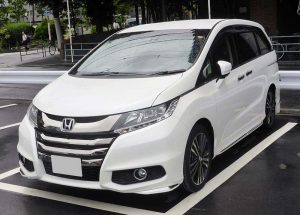
107,000 Honda Odyssey vans because of a problem with the power doors. Photo: Wikipedia.
Just in time for the Thanksgiving drive, Honda recalled 107,000 Honda Odyssey vans because the power doors may improperly latch and can potentially open while the vehicle is in operation. Honda has not received any reports of injuries.
Honda recalled vehicles from the 2018 and 2019 model years on November 20, 2018. The automaker called on drivers to request replacement power sliding door kits through an authorized Honda dealer. Replacement parts should arrive at licensed dealers in late December.
Honda advised owners they can disable the power door. Use manual operation until replacements arrive.
This is not the first recall involving Honda Odyssey vans. Last year, 900,000 Odyssey models from 2011 – 2017 were also recalled. In that case, Honda reported second-row seats could tip forward if not properly latched. Tipping could happen during moderate or heavy braking if seats were not properly latched after adjusting side-to-side or reinstalling a removed seat. Honda received 46 reports of minor injuries.
To learn more about the recalls, visit the Honda website.

IKEA recalled these dining room tables in November 2018 because the dining surface can collapse. Return for a refund.
IKEA Tables. It is a return if you have an IKEA table. The retailer recalled 8,200 dining tables in the U.S. and 1,500 in Canada on November 27, 2018, warning the table’s glass extension leaf can detach and drop.
This has already happened three times. IKEA reports one minor injury, requiring no medical attention.
These tables sold at IKEA stores and online from February 2017 through October 2018. They sold for approximately $300. IKEA says consumers can return them for a full refund or a replacement table. Learn more on the Consumer Product Safety Commission website.
Consumer Safety Tip: Consumers do not have to wait for the news media to report unsafe products and product recalls. You can view recalls online on the CPSC website and even sign up to receive email alerts when products are recalled. Visit the toy safety page on our website to learn how to sign up.
Not every recall is the same. The CPSC can release product recalls calling for refunds or replacements. Some products can be repaired easily. Others cannot. Consumers should pay attention to all recalls. Encourage friends and family to do the same: return and refund or replacement/repair. Another option is just remove the recalled product from your home, if it can be taken apart and discarded with care, so other children cannot reuse it.
A Decade of Toy Safety Efforts, Passage of Federal Safety Legislation to Protect Massachusetts Families
 At Breakstone, White & Gluck, our Boston product liability lawyers specialize in representing those injured by defective products. Toy injuries are common, even though toys should only be safe and fun for children. It is painful to learn they can be defective or may not have been fully tested or properly labeled. Defective toys can cause serious injuries, including fingertip lacerations, burns, facial injuries and broken bones. For children under age 3, the leading hazard is toys which contain small parts and balloons which can cause choking and suffocation. Toys should be tested to see if parts can fit through the “small parts” test. Those which pass through the “small parts” cylinder should have age-appropriate warnings, which read “Choking Hazard – Small Parts. Not for Children Under 3 Yrs.”
At Breakstone, White & Gluck, our Boston product liability lawyers specialize in representing those injured by defective products. Toy injuries are common, even though toys should only be safe and fun for children. It is painful to learn they can be defective or may not have been fully tested or properly labeled. Defective toys can cause serious injuries, including fingertip lacerations, burns, facial injuries and broken bones. For children under age 3, the leading hazard is toys which contain small parts and balloons which can cause choking and suffocation. Toys should be tested to see if parts can fit through the “small parts” test. Those which pass through the “small parts” cylinder should have age-appropriate warnings, which read “Choking Hazard – Small Parts. Not for Children Under 3 Yrs.”
Among older children and teens, Hoverboards and riding toys are popular holiday gifts. These toys have injured and killed in recent years, with Hoverboards also burning down homes as the lithium ion batteries charged. Before you buy, check the CPSC’s safety standard for Hoverboards (UL2272 safety standard). Remember the standard is still new, first issued in 2016, and not an endorsement for safety. In fact, the CPSC has strongly urged consumers not to buy Hoverboards, as has W.A.T.C.H., the Boston-based non-profit which included Hoverboards on its “10 Worst Toys” lists.
Taking the time to check if a toy you want to buy – or already own – has been recalled can prevent injuries and save your loved ones’ lives. The number of toy recalls varies by year, but there are always recalls. So far in 2018, we have seen child-related recalls of dolls, toys with loose wheels, clothing, toys with excessive lead limits and go karts. In 2017, the CPSC reported 28 recalls of individual products. Over the past 10 years, 2008, 2009 and 2010 have seen the most toy recalls, with the highest number coming in 2008, when 172 toys were recalled, according to the CPSC.
This was the first year of major safety changes, including passage of the landmark Consumer Product Safety Improvement Act (CPSIA) of 2008. For the first time, toys had to be tested to ensure compliance with the law and the CPSC was granted greater authority in overseeing toy safety standards. Federal limits were also imposed on toys containing lead and other chemical hazards. In December 2008, Mattel and subsidiary Fisher Price agreed to pay $12 million to Massachusetts and 38 other states over events leading to recalls of toys with lead levels above the new federal limit.
Beyond toys, children’s products are also subject to frequent recalls, including names like Graco car seats and Britax strollers. This is a frightening fact, because these products carry children.
Breakstone, White & Gluck writes about toy safety as part of our Project KidSafe campaign, with a goal of preventing toy-related injuries. Our recent blogs:
Trouble in Toyland Report Offers Valuable Warnings For Holiday Shoppers
Hitting the Safety Brake: A Warning About Battery-Operated Ride-On Toys
Consumer Warning: No Auto Insurance Coverage for Injuries When You Pay Friends, Family Members or Gypsy Drivers for Rides
 In Massachusetts, you can pay a licensed cab, Uber or Lyft for a ride and expect the driver to carry auto insurance if you are injured. These drivers are required to buy minimum levels of auto insurance under Massachusetts law, which is the way it should be.
In Massachusetts, you can pay a licensed cab, Uber or Lyft for a ride and expect the driver to carry auto insurance if you are injured. These drivers are required to buy minimum levels of auto insurance under Massachusetts law, which is the way it should be.
But now, two years after Massachusetts began regulating rideshare companies, auto insurance companies are becoming more careful in investigating car crashes to make sure they do not involve “gypsy cabs” or situations where passengers pay a private individual for a ride, even though they are not licensed as a business, taxi or have not met rideshare regulations. Insurance companies are saying passengers are not covered for injuries in these situations, and it’s an important warning to consumers.
There is a whole industry of gypsy cab drivers on the roads in wake of the rideshare legislation. They are simply ignoring the regulations and setting up social media pages advertising their services. They may also grow their business by word of mouth and by serving the same passengers they know well. Their prices may undercut other ride services, but there is a huge catch in the bargain: there may be no insurance in case of a car accident.
Gypsy cab drivers can offer cheaper fares for two reasons: they don’t buy the proper commercial insurance, and they fail to report their earnings to the state and federal government, so they don’t pay taxes.
Don’t take a chance! The odds are you will arrive at your destination safely. But the few dollars you save will look like a really poor investment if something goes wrong along the way, and you end up hurt in a car accident.
Please hold your wallet and read our consumer safety tips:
Gas and expenses. Can you share expenses for a trip? This should not be a problem, as long as everybody is paying their fair share, and nobody is making a profit.
Rethink your carpool. Carpooling is encouraged in our traffic-gridlocked state, especially when traveling during rush hour. But it’s not a real carpool if you never drive, and you pay somebody a fee to be their passenger. If you are the driver, you need to make sure your passengers are protected, or you may find yourself without insurance protection! Consider appropriate increases in your personal auto insurance coverage, which we explain later in this article.
Travel by cab, limousine or rideshare. Cabs, limousines, and rideshare vehicles are required to carry auto insurance to cover passengers in Massachusetts. How much coverage varies by type of ride service and by municipality. For example, a cab in Boston may have only $20,000 in basic coverage. But remember: you may have zero protection in gypsy cab situations.
Massachusetts lawmakers did better in passing legislation for rideshare vehicles in 2016, requiring them to carry adequate amounts of coverage when drivers are engaged in a pre-arranged ride. You can read about the required amounts on our Uber accidents web page.
Review your own auto insurance policy. In Massachusetts, you are required to carry auto insurance for your vehicle. Look at your personal policy or the policy covering other vehicles in your household. You may be able to buy additional coverage which may help if you are injured by a driver in a gypsy cab situation. Buying additional coverage on your own policy can also help if you are injured by any driver who has no auto insurance or does not have an adequate amount to properly compensate you for your injuries.
Look at the Auto Coverage Selections sheet and call your auto insurance agent. We tell our clients that the most important coverages you can have to protect yourself are underinsured motorist, uninsured motorist, and medical payments coverage. Ask your agent or broker about the cost of raising your optional coverages, and pay what you can afford. Learn more on our Massachusetts auto insurance safety tips page.
Excess coverage actually costs very little over the minimum coverage you are required to carry. Many people are surprised to learn they may be able to increase their coverage for a few dollars each year. This is a good investment for your own protection and for your peace of mind.
College students beware! College students are at high risk for suffering injuries in car accidents involving gypsy cabs. For decades, it has been a common practice for students to pay roommates and friends for rides. But in light of the position insurance companies are taking, it is time to stop paying your friends for anything more than your share of the gas and tolls.
Please consider this warning when you make your holiday travel arrangements in Massachusetts. This affects travelers coming into Logan Airport, South Station and North Station. But also travelers in college areas such as Boston, Cambridge, Framingham, Lowell, Worcester and Springfield and Amherst.
Call our Boston Car Accident Lawyers – Free Legal Consultation
Breakstone, White & Gluck has over 100 years combined experience successfully recovering compensation for drivers, passengers, cyclists and pedestrians seriously injured by car crashes. Our Boston car accident lawyers are highly experienced at investigating car and truck crashes and have an expert knowledge of Massachusetts auto insurance laws. We handle accidents involving Uber vehicles across the state, from Cape Cod to Boston to Worcester and Western Massachusetts.
If you have been injured, learn your legal rights. For a free consultation, call 800-379-1244 or617-723-7676 or use our contact form.
New Federal Recommendations to Reduce Pedestrian Fatalities and Injuries
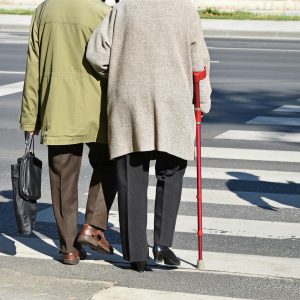 Pedestrians are facing a crisis on the roads, here in Boston and across the country. From 2009 to 2015, there was a 46 percent increase in pedestrian deaths across the U.S. (Source: National Highway Traffic Safety Administration).
Pedestrians are facing a crisis on the roads, here in Boston and across the country. From 2009 to 2015, there was a 46 percent increase in pedestrian deaths across the U.S. (Source: National Highway Traffic Safety Administration).
Now, the National Transportation Safety Board (NTSB) is stepping in with a comprehensive set of recommendations to improve safety, including: Read More
Expect Traffic Enforcement As Students Head Back to School in Massachusetts
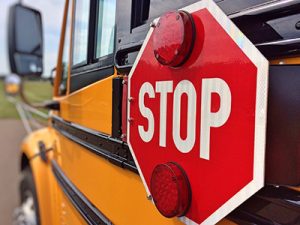
With students back to school in Massachusetts, local police departments are stressing safety around school buses while stepping up enforcement of drivers who fail to stop for pedestrians in crosswalks.
If a traffic enforcement sting came to your community, how many drivers would be stopped and cited for unsafe driving? Would you be among them?
We ask these questions as students head back to school across Massachusetts, in communities from Boston and Cambridge to Plymouth and Brockton to Worcester and Springfield.
Police departments across the state have set up traffic enforcement over the past few weeks, focusing on drivers who are not stopping for pedestrians in crosswalks and school buses. A few of the communities include New Bedford, Attleboro and South Boston.
In South Boston, the surveillance followed the tragic death of a 2-year-old in a traffic crash. The child was being pushed in a stroller on the sidewalk, when a van and car collided. The van plowed onto the sidewalk, injuring and ultimately killing the young boy. A day after the crash, the Boston Police Department and Massachusetts State Police set up a traffic enforcement initiative focusing on crosswalk enforcement, speeding and other unsafe driving behaviors. Within a few days, officers had issued approximately 500 citations for traffic violations. This is a very telling number, one Massachusetts drivers can’t ignore.
Breakstone, White & Gluck is a Boston law firm which specializes in personal injury, medical malpractice and car accident cases. Our firm is committed to safety for children, giving away over 20,000 bicycle helmets to children in Massachusetts through our Project KidSafe campaign. With experience representing clients who have been injured in pedestrian crosswalk accidents and other traffic crashes, we offer these tips for safe driving:
Slow down at crosswalks. Students who walk to school may have a crossing guard help them across the street. Always slow down as you approach crossing guards and children. Make eye contact with the crossing guard and assume you should stop. The crossing guard will wave you through when it’s safe to go.
But even when there is no crossing guard, drivers must stop for pedestrians in the crosswalk when there is a “Walk” or green signal. Other times, drivers have a responsibility to yield the right of way by slowing or stopping for pedestrians in the crosswalk. This includes times when pedestrians are in the crosswalk on the same side as the driver and when pedestrians are approaching from the other half of the lane and within 10 feet. There is a $200 fine for crosswalk violations in Massachusetts.
The best thing to do is approach crosswalks slowly and stop if you see anyone even near the entrance of the crosswalk. If you can, make eye contact with them, then wave for them to go. Depending on whether other cars stop, they may not be able to immediately cross. You may need to be patient for a few moments.
M.G.L. c.89 § 11 is the law governing pedestrian rights in crosswalks in Massachusetts. Read more about the law.
More Than Half of All Massachusetts Rideshare Trips Start in Boston
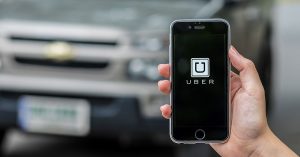
New state data confirms Boston is the hub of ridesharing. More than half of all rideshare trips in Massachusetts originated here in 2017.
In August 2016, Gov. Charlie Baker signed legislation regulating rideshare vehicles in Massachusetts, creating important protections for consumers. Among the reforms, drivers now have to carry a minimum level of auto insurance to protect passengers who are injured. They must also pass criminal background checks.
Now the state has released ridership data from 2017, the first full year of the regulations. The data provides a glimpse at rideshare’s mark on Massachusetts and particularly the city of Boston, where Uber and Lyft vehicles seem always in sight and rideshare accidents are rising.
Rideshare Numbers in Massachusetts
Massachusetts residents took approximately 64.8 million rideshare trips in 2017, compared to 408 million rides on public transportation, according to the data. Based on feedback from the transportation network companies, the state estimates one-third of rideshare trips carried multiple passengers.
Boston: Rideshare Hub
The majority of rideshare trips originated in Boston: 34.9 million. About 1.8 million Boston rideshare trips began at Logan International Airport. According to a Boston Globe analysis, there were roughly 96,000 Uber and Lyft vehicles on Boston streets each day of 2017!
More than 6.8 million trips started in Cambridge, the second leading city for rideshare starts. This is a dramatic difference for neighboring Boston and Cambridge. Somerville, Brookline and Newton rounded out the top five communities for rideshare starts.
Rideshare may be more convenient than public transportation. But rides can be slow. The slowest rides began in Boston, Cambridge, Somerville, Everett and Brookline, according to the state data. The average rideshare speed was 14 to 16 miles per hour in these communities, compared to 30 mph or above in about half of Massachusetts communities.
Rideshare Across Massachusetts
Per person, Suffolk and Middlesex counties saw 80 percent of all rideshare starts in Massachusetts, followed by Nantucket, off the Cape and Islands. Beyond these counties, a few notable numbers came from Worcester, where 848,000 rideshare trips originated and Lowell, where 490,000 rides began. More than 378,000 trips originated in Springfield.
Here are the 20 communities with the most rideshare starts:
- BOSTON
- CAMBRIDGE
- SOMERVILLE
- BROOKLINE
- NEWTON
- MEDFORD
- QUINCY
- MALDEN
- WORCESTER
- EVERETT
- REVERE
- WALTHAM
- CHELSEA
- LYNN
- LOWELL
- WATERTOWN
- BROCKTON
- SPRINGFIELD
- LAWRENCE
- FRAMINGHAM
Source: Rideshare Data Report, Mass.gov
Protecting Yourself as a Rideshare Passenger in Massachusetts, When to Seek Medical Attention, Call a Lawyer
When traveling by rideshare, stay alert and watch, even if you have a 5-star rated driver. While many rideshare drivers are well trained and simply want to help you reach your destination, car accidents can happen. Rideshare drivers, and others on the road, can be fatigued or engage in texting while driving. Whenever possible, travel with other passengers you know. If you feel unsafe at anytime, ask the driver to pull over and let you out in a safe area.
In Massachusetts, Uber and Lyft drivers are required to carry a minimum level of auto insurance. If you have been injured while traveling in a rideshare vehicle, the driver has a responsibility to stop and provide you with his license number, auto insurance carrier, address and contact information. If you have been injured, call for an ambulance or visit a hospital emergency room immediately.
Then call an experienced attorney. Visit our Uber accident web page or our Lyft accident web page for more information.
At Breakstone, White & Gluck, our Boston car accident lawyers have over 100 years combined experience representing those injured by negligence and wrongdoing. We are conveniently located at 2 Center Plaza, Suite 530, across the street from Boston City Hall and the Government Center MBTA station.
If you have been injured, contact our firm and learn your rights for seeking compensation. Call 800-379-1244 or 617-723-7676 or use our contact form.


